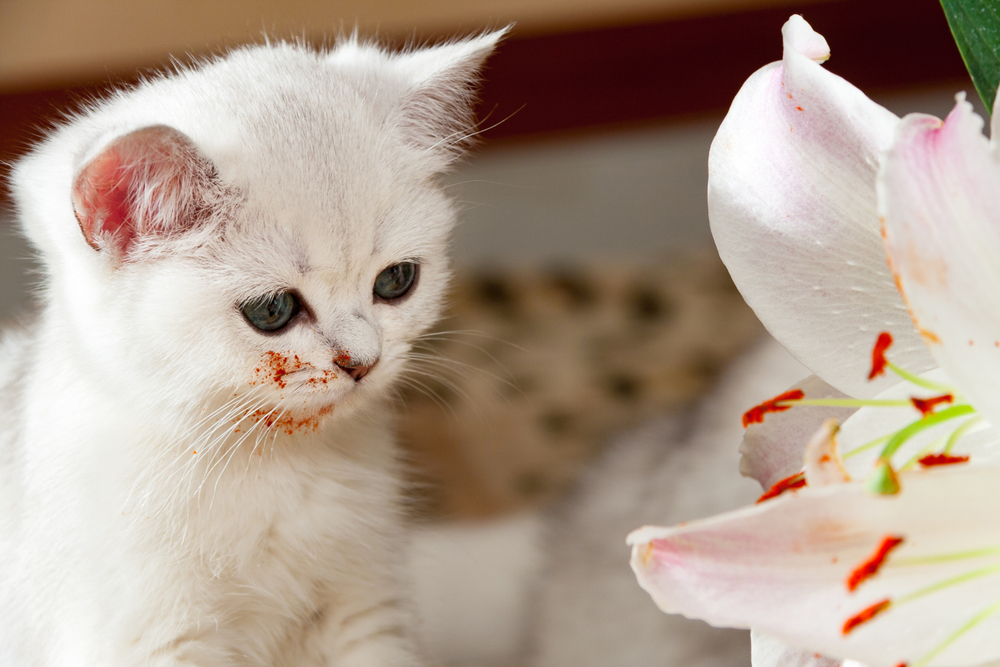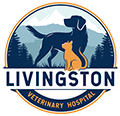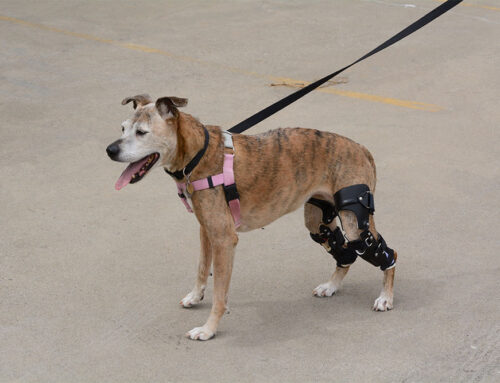Pets can get into mischief, putting their noses and paws into hazardous places, and wreaking havoc on your plans. To help pet-proof your home against toxic dangers, the Livingston Veterinary Hospital team reviewed the toxicities most frequently reported to the ASPCA Animal Poison Control Center. Here are the ASPCA’s top 10 toxicities, with links for further information.
#1: Human over-the-counter medications are not for pets
Common over-the-counter (OTC) medications are number one on the pet toxicity list, including non-steroidal anti-inflammatories (NSAIDs) (i.e., ibuprofen and naproxen), and acetaminophen. Although pets can find and ingest these medications on their own, some owners provide them as pain relief for their four-legged friends. Unfortunately, your pet does not easily metabolize human NSAIDs or acetaminophen, and ingestion can cause vomiting, diarrhea, stomach ulceration, or organ damage. Safer, veterinary-prescribed products are available to alleviate your pet’s pain.
#2: Human prescription medications and your pet
Your pet may ingest cardiac, antidepressant, and attention deficit hyperactivity disorder medications that you drop on the floor, or store in an unsecured purse or backpack. Some dogs enjoy chewing the bottle, and accidentally consume the contents. Human prescription medications can initially cause vomiting or diarrhea in your pet and, depending on the medication, may lead to blood pressure and cardiac changes, nervous system abnormalities, or organ damage. Keep these products tightly capped and out of paws’ reach.
#3: Foods you should not share with your pet
To pet-proof your kitchen, use child-proof latches on your cupboards and seal your trash in a covered container or behind a secure door. Avoid sharing any food products that contain xylitol, raisins and grapes, or onions, garlic, and chives. Xylitol,which is a common ingredient in sugar-free products, can cause dangerous drops in your pet’s blood glucose. Some pets can develop kidney failure after ingesting only a few raisins or grapes, and cats who eat onions, garlic, and chives may become anemic.
#4: Chocolate dangers and your pet
Chocolate requires a special mention because, although a food, chocolate has significant toxic effects on pets, and especially dogs, who find this sweet treat almost irresistible. Dark or baking chocolate are the most dangerous, and depending on the type of chocolate and quantity ingested, your pet’s illness signs can progress from gastrointestinal problems to cardiac and neurologic abnormalities. With Easter around the corner, ensure that all chocolate products are safely stowed away from curious noses.
#5: Veterinary medication overdose risks and your pet
Medicating pets can be difficult, so veterinary product manufacturers have developed flavored, more palatable chews and liquids. However, your pet may like the taste so much that they scavenge for more, and eat the entire prescription. Treat your pet’s prescription medications like your own, and keep them well out of reach.
#6: Household product exposure and your pet
Home improvement has increased during the COVID pandemic, with the use of more household paint, adhesives, spackle, and other toxic products than usual. Your pet may want to help out and get in the middle of your home repairs, so ensure you keep them safe from danger in a confined area.
#7: Rodenticides are hazardous to your pet
Rodenticides come in four different formulations—anticoagulant, bromethalin, Vitamin D3, and phosphides—that have different illness signs, but are all life-threatening, and must be completely inaccessible to your pet. Secondary rodenticide toxicity can also occur if your pet eats a recently poisoned animal.
#8: Plants can be toxic to your pet

Check this list of toxic and non-toxic plants that may be dangerous to your pet before you bring any plants home. Lilies, including the leaves, flowers, pollen, or water in the vase, are particularly toxic to cats, and ingestion can cause sudden kidney failure.
#9: Pesticide exposure and your pet
With the increasing availability of pet-safe products, reports of pesticide exposure have decreased, but wasp sprays, ant bait, and DEET mosquito repellent can be toxic to your pets. Read the label carefully before using a pesticide, and prevent your pet from coming into contact with glyphosates or carbamates. Products with pyrethrin or permethrin, which can be found in some over-the-counter flea and tick preventives, are especially toxic to cats.
#10: Toxic garden products and your pet
Compare the ingredients in your garden products with this fertilizer and herbicide list. Most fertilizers cause mild gastrointestinal signs after ingestion, but some contain ingredients that result in severe illness. Avoid using snail bait with metaldehyde, because ingestion can quickly cause tremors, seizures, and collapse.
The Livingston Veterinary Hospital team is here for you, so don’t hesitate to contact us if you suspect your pet ingested or was exposed to a toxin. After business hours, contact the ASPCA Animal Poison Control Center, Pet Poison Helpline, or a local emergency hospital. Also, National Pet Poison Prevention is March 21 to 27—the perfect time to check your home and yard and ensure all your toxic home products are safely out of your pet’s reach.







Leave A Comment